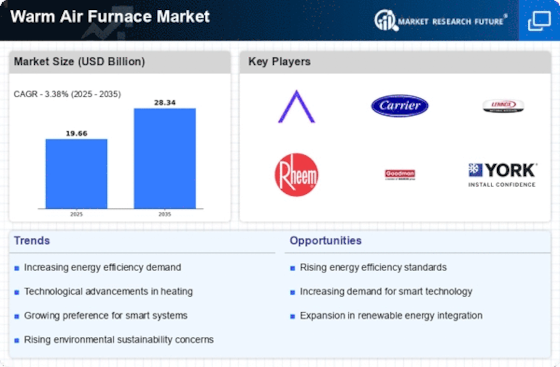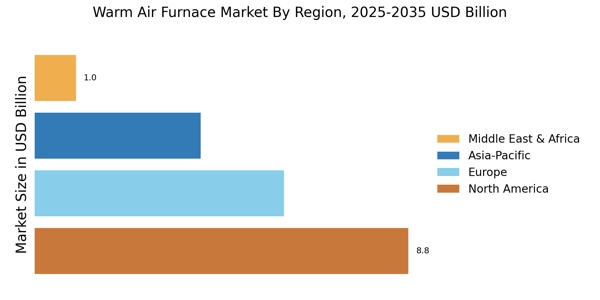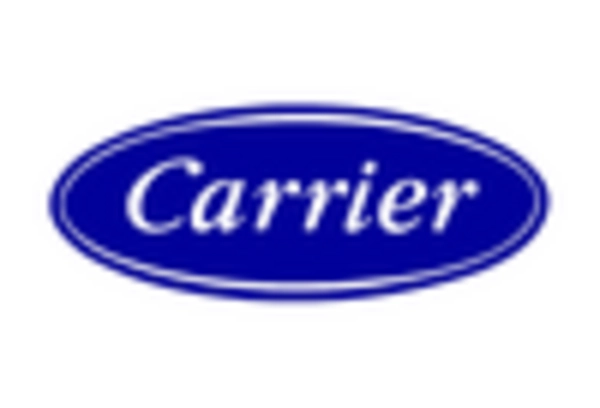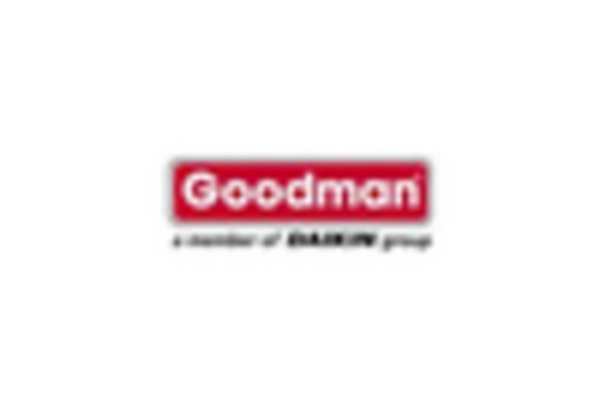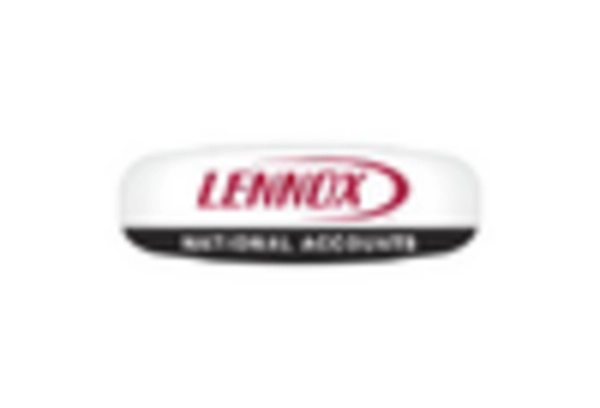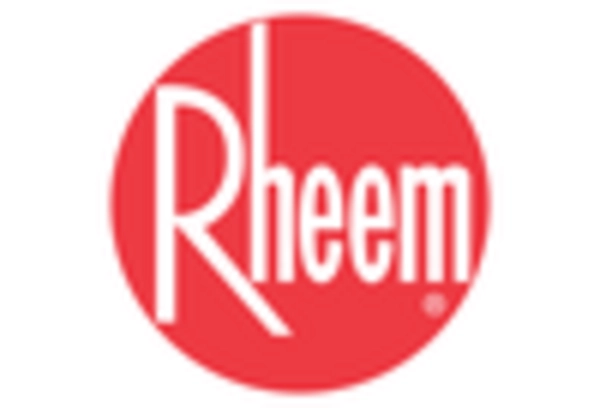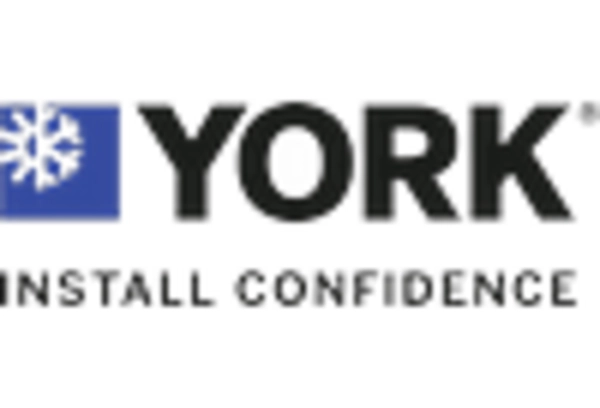Regulatory Compliance
Regulatory compliance plays a crucial role in shaping the Warm Air Furnace Market. Governments worldwide are implementing stricter regulations aimed at reducing greenhouse gas emissions and promoting energy efficiency. These regulations often mandate the use of high-efficiency heating systems, which directly impacts the demand for warm air furnaces. For example, the implementation of energy efficiency standards has led to a surge in the adoption of furnaces that meet or exceed these requirements. As manufacturers adapt to these regulations, the Warm Air Furnace Market is likely to witness a shift towards more sustainable and compliant heating solutions, potentially increasing market competition and innovation.
Technological Advancements
The Warm Air Furnace Market is experiencing a notable shift due to rapid technological advancements. Innovations in furnace design and materials have led to improved efficiency and performance. For instance, the introduction of variable speed blowers and advanced control systems enhances the operational efficiency of warm air furnaces. According to recent data, the market for high-efficiency furnaces is projected to grow significantly, driven by consumer demand for energy-saving solutions. These advancements not only reduce energy consumption but also lower operational costs, making warm air furnaces more appealing to both residential and commercial users. As technology continues to evolve, the Warm Air Furnace Market is likely to see further enhancements that could redefine heating solutions.
Rising Construction Activities
The Warm Air Furnace Market is poised for growth due to rising construction activities across various sectors. As new residential and commercial buildings are constructed, the demand for efficient heating systems, including warm air furnaces, is expected to increase. Recent statistics indicate that the construction sector is recovering and expanding, leading to a higher demand for HVAC systems. This trend is particularly evident in regions where urbanization is accelerating, resulting in a greater need for effective heating solutions. Consequently, the Warm Air Furnace Market stands to benefit from this construction boom, as builders and developers seek reliable and efficient heating options for their projects.
Consumer Preference for Comfort
Consumer preference for enhanced comfort and indoor air quality is significantly influencing the Warm Air Furnace Market. As individuals become more aware of the importance of a comfortable living environment, the demand for effective heating solutions is on the rise. Warm air furnaces, known for their ability to provide consistent and even heating, are increasingly favored by homeowners. Market data suggests that consumers are willing to invest in high-quality heating systems that ensure comfort during colder months. This shift in consumer behavior is likely to drive growth in the Warm Air Furnace Market, as manufacturers respond by offering innovative products that cater to these preferences.
Increased Focus on Energy Costs
The rising focus on energy costs is a pivotal driver in the Warm Air Furnace Market. As energy prices fluctuate, consumers are becoming more conscious of their heating expenses, prompting a shift towards energy-efficient solutions. Warm air furnaces that offer lower operational costs and improved efficiency are gaining traction among cost-conscious consumers. Market analysis indicates that the demand for energy-efficient heating systems is expected to rise, as individuals seek to mitigate their energy bills. This trend not only benefits consumers but also encourages manufacturers to innovate and develop more efficient warm air furnace models, thereby enhancing the overall competitiveness of the Warm Air Furnace Market.


